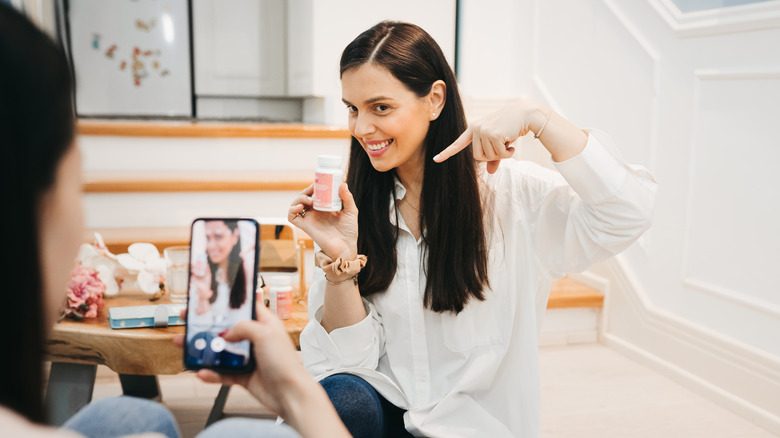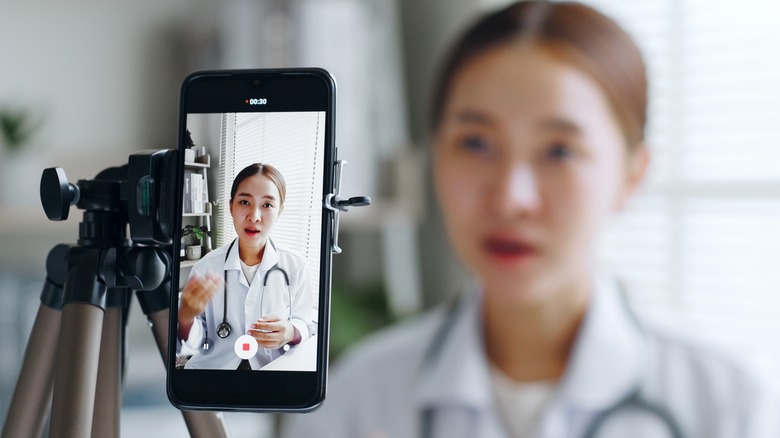TikTok Health Advice: How To Spot Misinformation, And Why You Need To Be Careful
For about as long as the internet has been publicly available, it has been a force for both good and bad. Of course, with the power of the internet, nearly all of the world's knowledge is easily accessible, and you can learn just about anything you want. The problem is that such knowledge can be complicated to interpret properly without the proper education, resulting in inaccurate and potentially hazardous statements. That's also banking on the assumption that individuals aren't deliberately disseminating misinformation for malicious purposes or just for kicks.
One of the most dangerous kinds of misinformation is bogus health advice, including fad diets, home remedies, or otherwise downplaying what could be a serious health concern. What makes this kind of misinformation so dangerous is its sheer ubiquity. Through social platforms like TikTok, anyone can quickly and easily disseminate a false claim as though it were the real deal, and more individuals than you'd think will buy into it.
Whether you encounter health information in passing or seek it out deliberately, you need to train yourself to treat everything you hear on TikTok with a skeptical ear. Following a thread of misinformation and either attempting a bogus home remedy or ignoring a worsening condition could endanger your health and safety.
If they're not a doctor, they don't know
The first and foremost rule regarding health advice on TikTok is that if it's not coming from an accredited doctor, it's worthless. Anyone can make a half-hearted effort to parrot back some random health tidbit they picked up from a friend or family member. Still, a lot of health-centric information that gets around in this matter is usually rooted in outdated data or urban legends. If the person in a TikTok video is truly a licensed doctor, you can consider listening to what they have to say. Otherwise, if someone's throwing out information without a proper source that they have no education in, it's best dismissed out of hand.
Recently, the James Cancer Hospital and Solove Research Institute conducted a study on the accuracy of information from TikTok on gynecologic cancer. Based on the study's findings, at least 73% of the information retrieved from TikTok was either poorly explained or outright inaccurate. Unfortunately, a lot of this information came from those sharing their battles with cancer, which means that they were not sharing misinformation maliciously, but in a genuine attempt to help others like them.
If you ever need health information, consult a doctor, not TikTok. It may seem more convenient and relatable, but that's not the same as being correct and safe.

